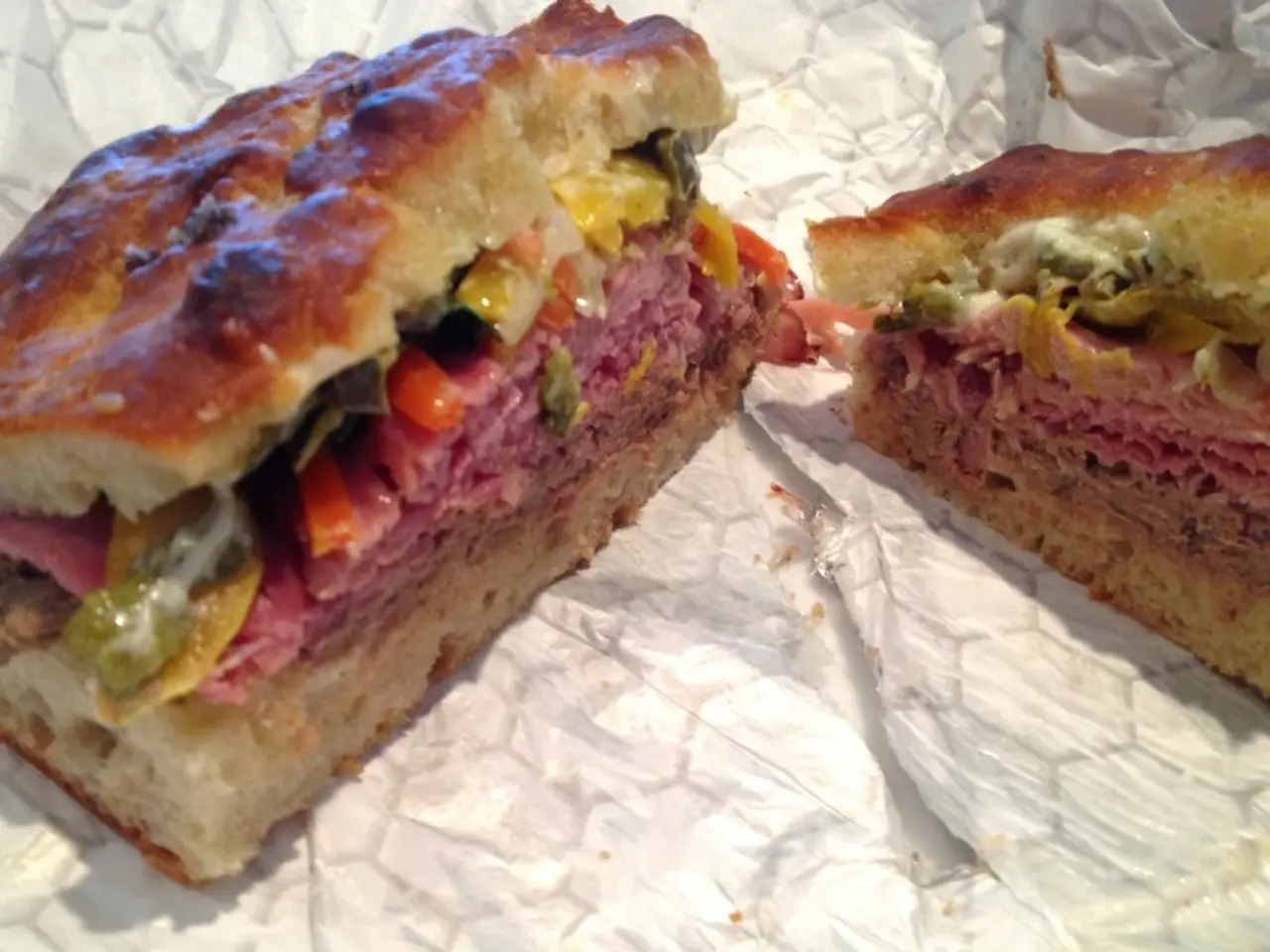Revolutionary 3D Printer Transforms Banana Peels into Useful Coffee Mugs, Utilizing Food Waste for Practical Purposes
Introducing the FOODres.AI Printer: A Revolutionary Solution to Food Waste
The FOODres.AI Printer, an innovative device developed by researchers at the Massachusetts Institute of Technology (MIT), is set to revolutionise the way we handle food waste. This groundbreaking 3D printer transforms organic kitchen waste into useful, functional objects, creating a closed-loop system where waste is repurposed within the same household or community.
At the heart of the FOODres.AI Printer is an AI-powered companion application that uses image recognition to identify food waste for printing. Users simply take a photo of their scraps using the app, and it suggests suitable printable items based on available materials. From coasters and trays to mugs and custom designs, the possibilities are endless.
Once the desired item is selected, the food waste is processed in the printer's built-in heating and mixing chamber. Natural additives are combined with the scraps to convert them into a bioplastic paste, which is then extruded in layers by a custom three-axis heated extruder to build the chosen object layer by layer. The entire process is automated and user-friendly, requiring no prior knowledge of 3D printing.
By enabling the reuse of food waste directly at home, the FOODres.AI Printer encourages a circular economy that reduces landfill waste and reliance on new raw materials. It represents a sustainable approach to household food waste, turning yesterday's scraps—such as coffee grounds or wilted vegetables—into everyday practical items.
In 2019, the U.S. generated 66 million tons of food waste, contributing to climate change as much as CO2 emissions from 42 coal-fired power plants (EPA report). The FOODres.AI Printer is part of a growing trend where 3D printers are expanding beyond plastics and metals, working with food, healthcare materials, and sustainable materials from waste, encouraging local recycling loops.
The FOODres.AI Printer team plans to test the 3D printer "in the wild," starting with a pilot project in Cambridge. The goal is to save 15 million pounds of food and reach more than 2000 households in need. The printer encourages daily eco-friendly practices within communities by transforming food waste into useful objects, fostering a culture of sustainability.
Looking to the future, the FOODres.AI Printer is part of a broader movement toward biodegradable or food-based 3D printing. This technology is not just limited to household items but also extends to printing actual meals, medical materials, and even synthetic skin or blood vessels.
For more information about the FOODres.AI Printer project, please visit MIT's dedicated webpage. This innovative device is set to change the way we view and handle food waste, making our homes and communities more sustainable and eco-friendly.
- The revolutionary FOODres.AI Printer, an innovation in technology, utilizes a closed-loop system by transforming kitchen waste into useful items, thus fostering environmental-science practices and reducing the need for new materials.
- This technology, pioneered by MIT researchers, is a significant step in the growing trend of 3D printers, as they expand their capabilities beyond plastics and metals, now working with food and sustainable materials from waste, promoting local recycling loops.
- The FOODres.AI Printer team aims to test this device in communities, initializing a pilot project in Cambridge, and eventually reach more than 2000 households, promoting daily eco-friendly practices and contributing to a culture of sustainability.




